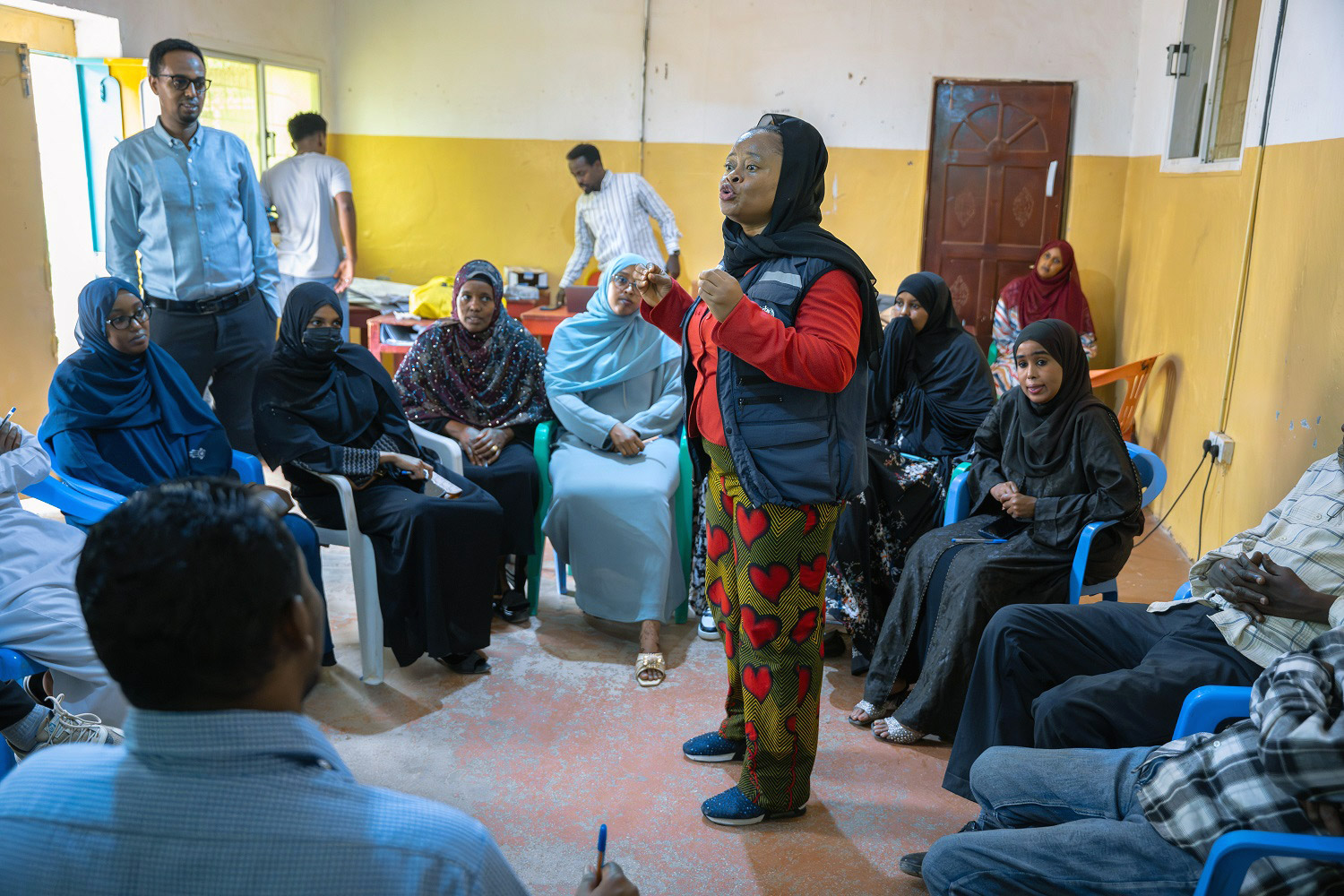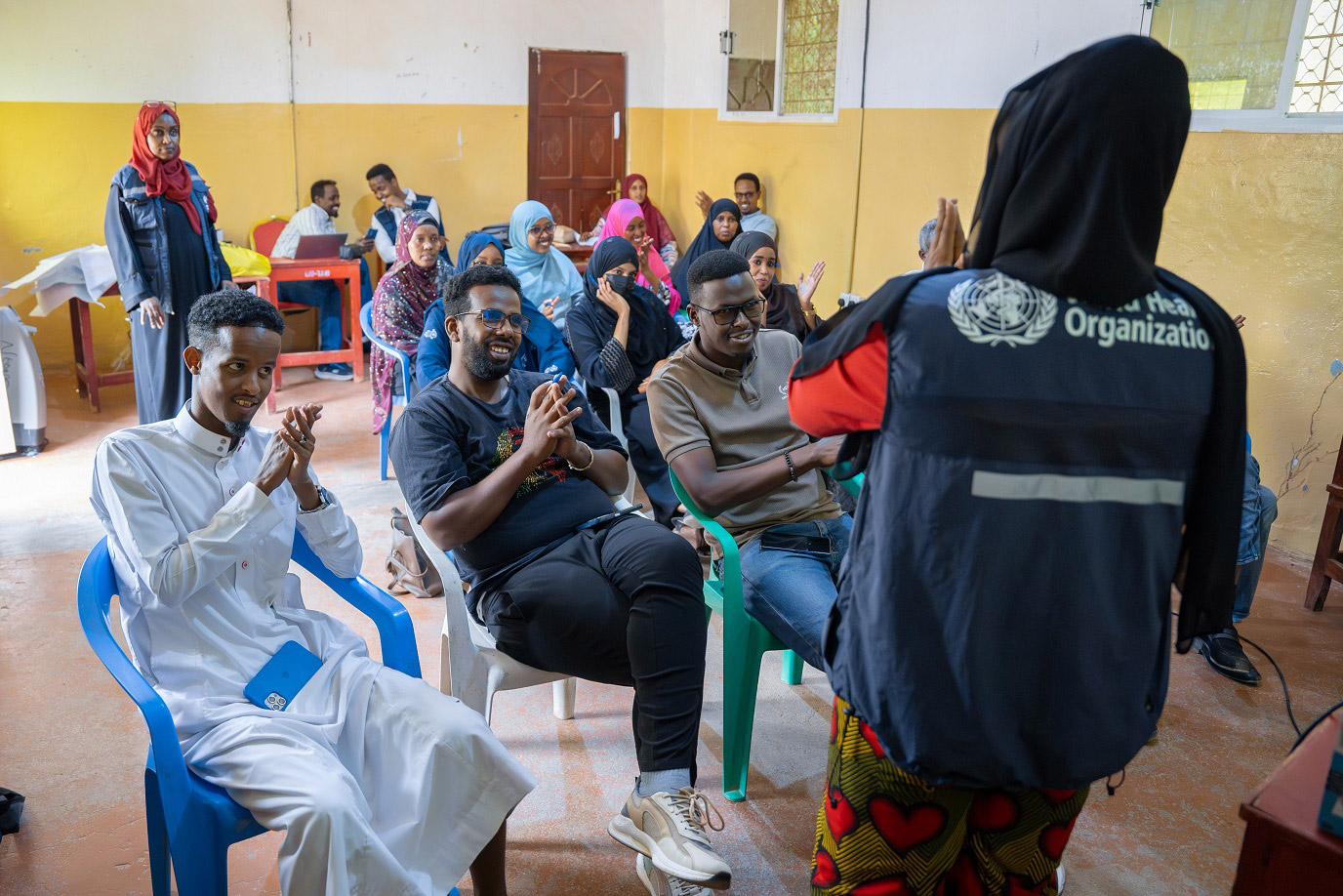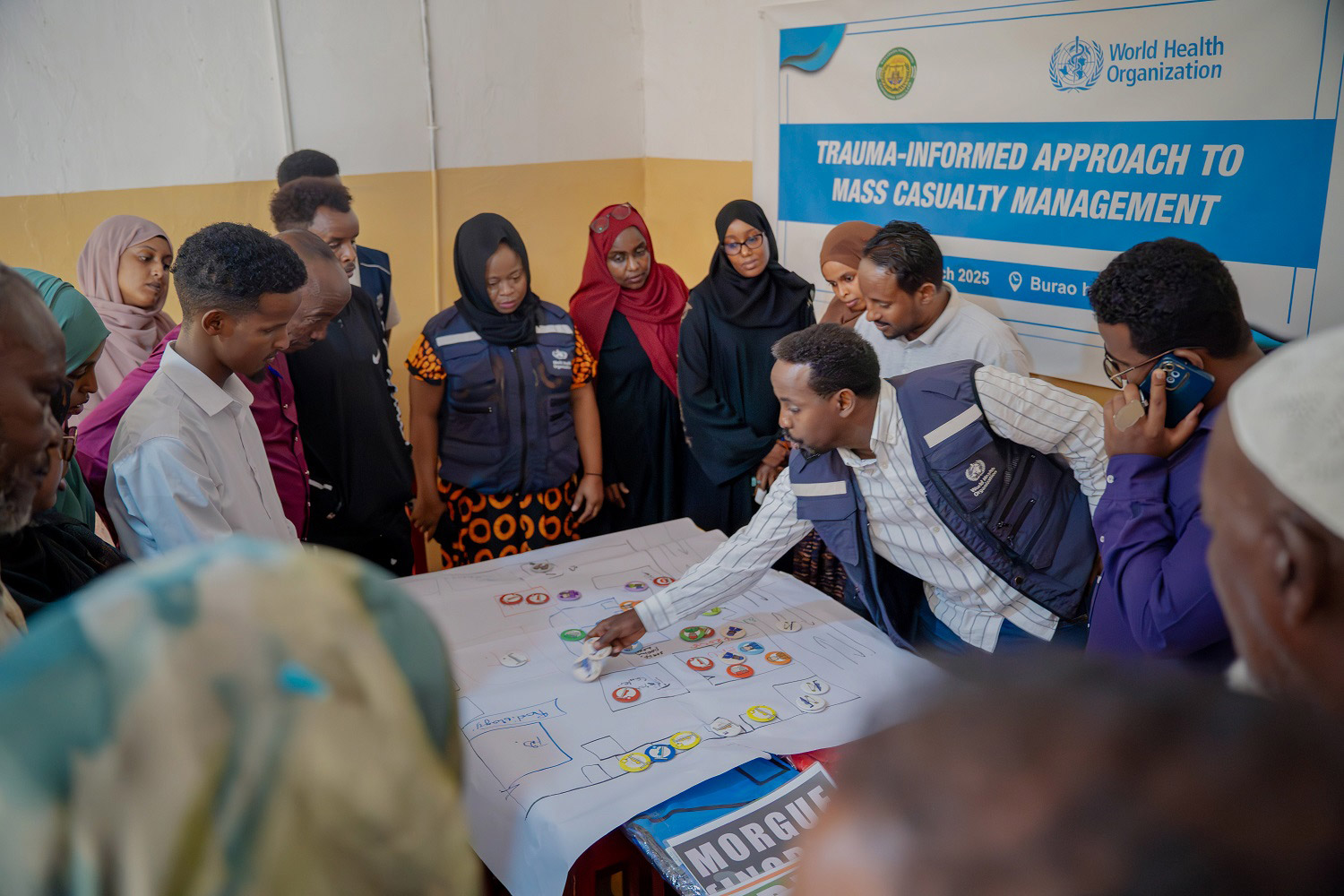The World Health Organisation (WHO) has launched a comprehensive trauma preparedness initiative to strengthen Somalia’s emergency health system, as escalating violence in parts of Jubaland and Somaliland continues to stretch hospitals and frontline workers to their limits.
In many of Somalia’s under-resourced hospitals, trauma patients often face critical shortages of blood, medical equipment and trained personnel.
During mass casualty incidents, these gaps result in dangerous delays that put lives at risk.

Health workers, from doctors and nurses to cleaners and security staff, operate under extreme pressure, making split-second decisions while managing the psychological toll of repeated exposure to trauma.
Over time, this unrelenting stress undermines both their well-being and their ability to deliver quality care.
To address these challenges, WHO Somalia, supported by the Contingency Fund for Emergencies, has combined the delivery of trauma supplies with training in mass casualty management, psychological first aid, and trauma-informed care.
The initiative is designed not only to improve patient outcomes but also to safeguard the mental health and resilience of health workers.
In Bossaso and Burao, 49 frontline staff participated in intensive workshops that included triage exercises under pressure and full-scale simulation drills replicating conflict-driven surges.
Unlike typical emergency training sessions, these sessions incorporated self-care planning, stress-regulation techniques, and supervised debriefings, placing mental health at the centre of emergency response.
“The most encouraging outcome of this workshop was that participants reached a level where they understood the change is for them and their well-being,” said Uchechi Chukwuma, WHO Somalia’s Mental Health and Psychosocial Support Specialist.
Frontline staff welcomed the training as timely and transformative.
“This training was crucial for us because Burao General Hospital in Togdheer receives many war-related injuries. Strengthening our skills means we can respond more effectively and save more lives,” said Farhan Ali Osman, an emergency department worker at the hospital.
Alongside the training, WHO distributed 32 trauma kits to hospitals across Federal Member States, including Jubaland, Hirshabelle, Galmudug, Puntland, Southwest State and Banadir.
To ensure rapid response, the kits were pre-positioned at WHO hubs in Hargeisa, Garowe and Mogadishu.
A simulation exercise in Bossaso further tested clinical response and coordination, using triage wristbands, designated patient zones and phased activation protocols.
The drill highlighted strong teamwork but also revealed gaps in documentation and equipment that will inform future improvements.
The initiative also supports longer-term system strengthening. A draft mass casualty management plan developed for Bossaso General Hospital is set to serve as a model for other regional facilities.
Meanwhile, a WHO-UNFPA coordination workshop in Mogadishu brought together partners to integrate trauma response with mental health, psychosocial support and gender-based violence services across humanitarian programs.

WHO Somalia plans to expand the initiative nationwide in collaboration with the Ministry of Health and partners.
The ultimate goal: reduce trauma-related deaths and injuries while protecting the people at the heart of the system.
“The health system can’t heal without its workforce healing too,” WHO emphasized.

